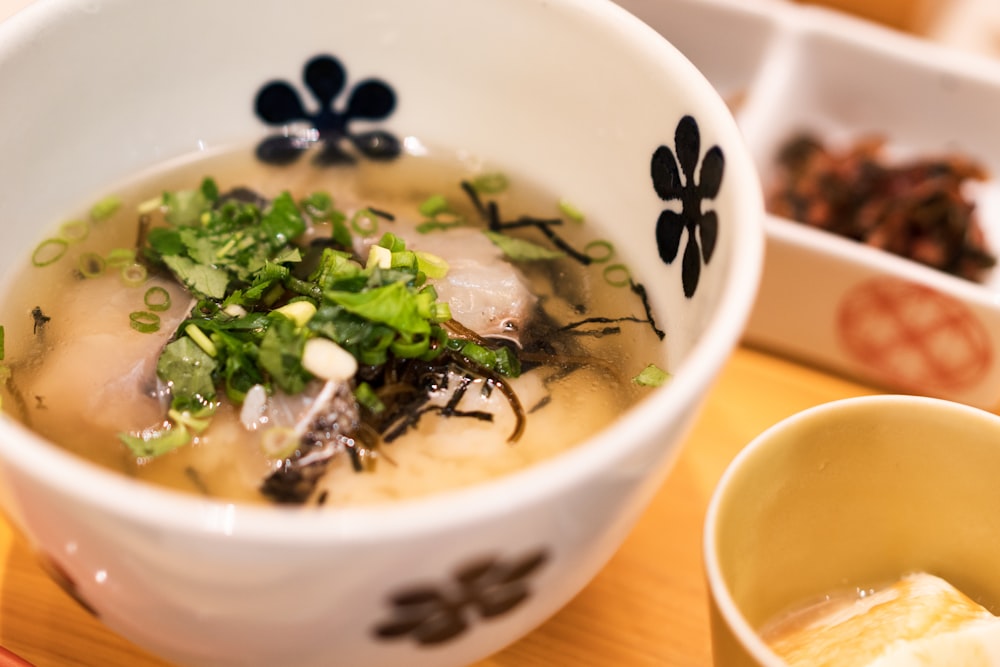Miso is a salty paste, typically made from fermented soy beans that has been a staple ingredient in the Japanese diet for thousands of years. It can also be made using other grains, such as fermented barley, rice or oats, mixed with salt and koji, a type of bacteria, resulting in a range of miso tastes, colors and uses. It is one of the best condiments to store in your refrigerator, as it’s versatile in recipes and packed with some noteworthy miso health benefits.
Miso soup is not only delicious but also packed with a range of nutrients that can help prevent a wide range of diseases.
These are the possible health benefits of miso:
- Improves Digestion
Miso is rich in probiotics, which are beneficial bacteria that promote gut health. These probiotics can help improve digestion by breaking down food and improving nutrient absorption. Additionally, miso contains enzymes that can help alleviate digestive issues such as bloating and constipation.
- Boosts Immunity
Miso is also rich in antioxidants, which can help protect the body from free radicals that can cause cell damage and lead to disease. Furthermore, miso contains zinc, which is essential for a healthy immune system.
- Lowers Cholesterol
Studies have shown that miso can help lower cholesterol levels in the body. Miso contains compounds called isoflavones, which can help reduce LDL cholesterol (the “bad” cholesterol) levels in the blood.
- Provides Essential Nutrients
Miso is a good source of protein, vitamins, and minerals. It contains all the essential amino acids that the body needs to build and repair tissues. Additionally, miso is rich in B vitamins, which are essential for energy production and a healthy nervous system.
- May Help Prevent Cancer
Some studies have shown that miso offers protection from certain types of cancer, such as stomach, liver, and breast cancer.
In addition to its antioxidant properties, miso soup also contains compounds called isoflavones, which have been shown to have anti-cancer effects. Isoflavones are a type of phytoestrogen, which means they can mimic the effects of estrogen in the body. This can help reduce the risk of developing hormone-related cancers such as breast and prostate cancer.
Miso can be used in a variety of dishes, including soups, stews, marinades, and dressings. It can also be used as a condiment and spread on toast or mixed into salad dressings. Here are some ideas to help you incorporate miso into your diet:
- Add miso to your morning smoothie for an extra protein boost.
- Add miso to rice or oat porridge.
- Use miso as a marinade for fish, chicken, pork, tofu, or vegetables.
- Make a miso soup by adding miso paste to boiling water and then adding vegetables, noodles, meat, or tofu.
- Use miso as a salad dressing by mixing it with olive oil, lemon juice, and garlic.
- Spread a think layer miso on toast or crackers for a savory snack.
Caveat
It is important to note that miso soup should be consumed in moderation as it is high in sodium. Excess sodium intake can lead to high blood pressure, which is a risk factor for heart disease and stroke.
However, there are low-sodium miso options available, and it is also possible to make miso soup at home using low-sodium miso paste and fresh ingredients.
Conclusion
In conclusion, miso soup is a delicious and nutritious food that can provide numerous health benefits. Its probiotic, antioxidant, and anti-cancer properties make it a great addition to a healthy diet. So, if you’re looking for a tasty way to boost your health, give miso soup a try!

